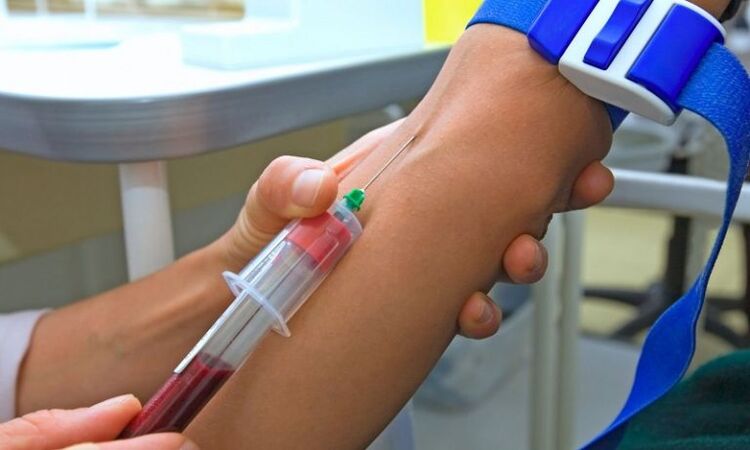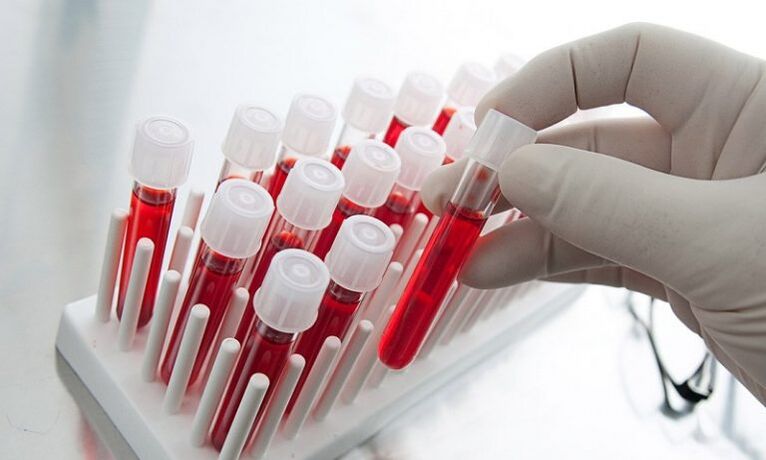The diagnosis of inflammation of the prostate gland at this time is a very simple procedure for the doctor. Apart from the rare atypical forms of the disease, it is relatively easy to diagnose acute prostatitis.

During the treatment of the disease, the patient has to undergo a series of laboratory and instrumental examinations. Often patients are interested in why they should take a general PSA blood test for prostatitis. Not everyone understands the role of these markers in diagnosing the underlying disease.
What is a PSA?
Prostate-specific antigen (PSA) is a special glycoprotein produced exclusively by prostate gland cells. Its main role is sperm thinning and sperm activation during ejaculation formation.
This protein can be found in the blood, and because it is only produced in the prostate, it partially shows its function and all types of lesions.
It is widely used in the diagnosis of diseases such as:
- Chronic prostatitis;
- Benign prostatic hyperplasia - prostate adenoma;
- Malignant neoplasm of the male organ - prostate cancer.
General PSA blood tests in chronic prostatitis can show disease progression and dangerous disease complications, which are indicated by degeneration of damaged cells becoming atypical with the formation of prostate cancer.
Prostate -specific antigens are tumor markers that can indicate the presence of a tumor in the early stages of its development.
Ordinary pointers
Since proteins are synthesized in male glandular tissue, the presence of small amounts in the blood is the norm. The screening threshold for normal activity of tumor markers is values up to 4 ng / ml in blood.

The amount of protein directly depends on the following factors:
- The man's age. There is a certain correlation between how old the patient is and the activity of marker production by the gland;
| Age, years | PSA index, ng / ml |
| 40-49 | 2. 5 |
| 50-59 | 3. 5 |
| 60-69 | 4. 5 |
| >70 | 6. 5 |
- The regularity of sexual intercourse;
- The presence of inflammatory processes in the prostate;
- Physical trauma and organ damage;
- delayed surgical intervention or special diagnostic procedures (prostate massage, digital rectal examination);
- Taking medications.
All of these aspects can affect the antigen count in the bloodstream, and sometimes even confuse doctors. That is why it is necessary to know how to pass the PSA blood test correctly for generalized male prostatitis, in order for further therapy to be successful.
PSA inventory
Before a man donates blood for prostate -specific antigen detection, he must adhere to a number of important things that prevent misinterpretation of the final results.

To avoid laboratory errors, patients should take into account the following characteristics:
- You should not eat 8 hours before blood sampling. You can drink tea, juice or water.
- Avoid cycling, stationary biking, or long -distance hiking (>5 km) 24 hours before the start of the study.
- 1 week before the test, you should refrain from sexual intercourse and masturbation, consuming spicy and smoked foods.
- If the patient undergoes transrectal ultrasound of the prostate (TRUS), digital examination of the rectum, colonoscopy or catheterization of the bladder, it is necessary to wait at least 7 days before determining the PSA in the blood.
- After a prostate biopsy or prostate massage, you have to wait 2 weeks.
Only if all these rules are followed, it is possible to say that PSA blood tests for generalized prostatitis will be truly reliable.
Decoding and PSA test goals
The main purpose of such examinations is the ability to control the course of chronic forms of the disease and to quickly identify problems if malignancy (tumor formation) of the prostate occurs.
In diseases such as acute, chronic, bacterial, congestive prostatitis, PSA levels may be slightly increased to 5 ng / ml. This is not yet a cause for panic. If, after carrying out adequate drug therapy, the indicators are abnormal, then this is considered an absolute indication for organ puncture with subsequent histological examination.
Usually, the larger the volume of the prostate, the more cells that are able to produce glycoproteins. It has been clinically proven that 1 gram of organ parenchyma in benign hyperplasia also synthesizes 0. 35 ng / ml of antigen. The corresponding indicator for cancer is 3. 5 ng / ml.
This ratio allows physicians with a high degree of reliability to assess the likelihood of developing malignant neoplasms in chronic inflammation of the prostate gland. According to statistics, 83% of cancer patients simultaneously experience prolonged inflammation of the male glands. This allows us to consider this pathology as a predictor of cancer.
Conclusion
Blood testing for PSA in prostatitis is part of the mandatory examination of urological patients. Its importance can hardly be overestimated, as it can indicate with certainty the formation of atypical cell growth, which leads to the development of malignant neoplasms.
























